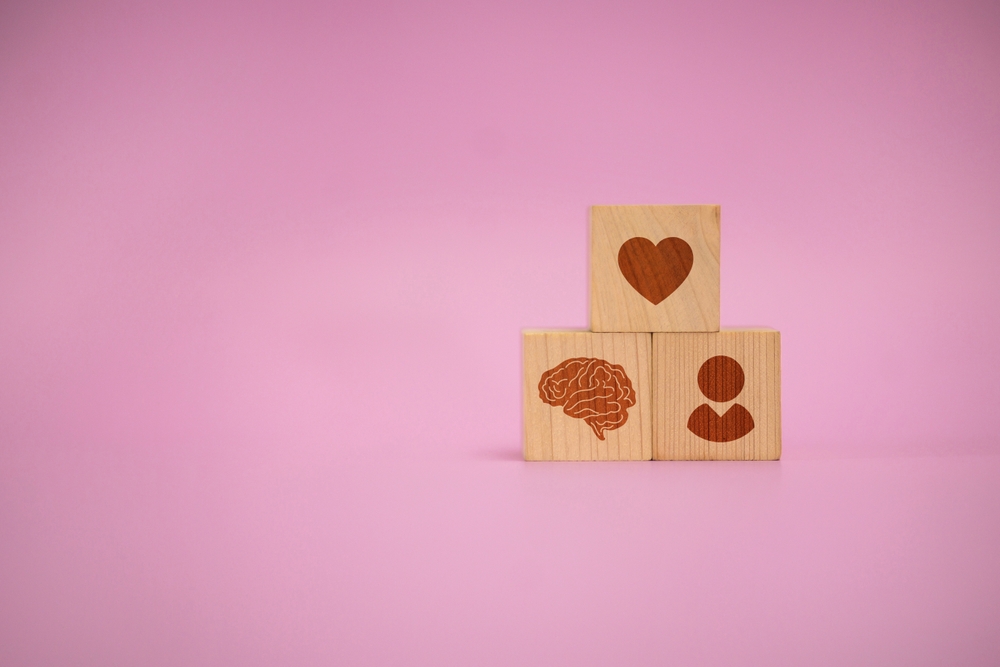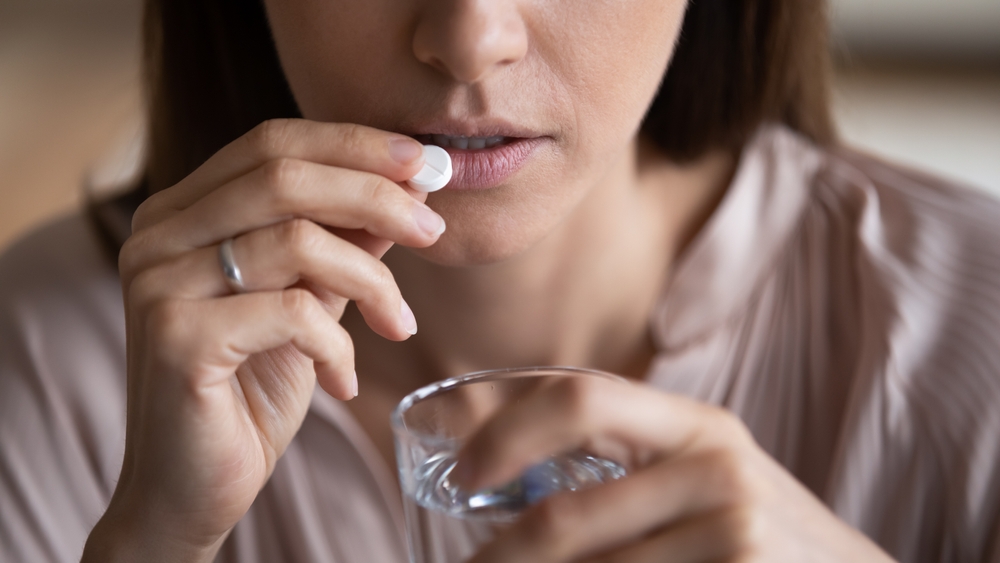
Turmeric for Depression and Anxiety: Does Curcumin Really Work?

The Golden Spice and Mental Health
Turmeric—the golden-hued spice found in curries and teas—has been used for centuries in traditional medicine. But beyond its culinary appeal, turmeric is gaining attention for its potential role in mental health. Its active compound, curcumin, has been studied for its anti-inflammatory, antioxidant, and neuroprotective properties. But can turmeric really help with depression and anxiety? Let’s dive into the research.
Curcumin: The Key Ingredient in Turmeric
Curcumin is the primary bioactive compound in turmeric, responsible for its bright yellow color and many of its health benefits. In traditional Indian and Chinese medicine, turmeric has been used to treat digestive issues, infections, and even wounds. More recently, curcumin has been studied for its effects on brain health, including its ability to support mood regulation and cognitive function.
How Curcumin Affects Mental Health
Depression and anxiety are complex conditions influenced by multiple biological pathways, and curcumin appears to act on several of these:
- Inflammation and Oxidative Stress
- Chronic inflammation is linked to depression and anxiety. Curcumin is a powerful anti-inflammatory agent that helps reduce pro-inflammatory cytokines that contribute to mental health disorders.
- A meta-analysis of randomized controlled trials found that curcumin supplementation significantly reduced inflammatory markers, suggesting a potential mechanism for its antidepressant effects.[1]
- Neurotransmitter Regulation
- Curcumin has been shown to influence serotonin, dopamine, and norepinephrine levels—neurotransmitters crucial for mood stabilization.
- Studies suggest that curcumin may work similarly to conventional antidepressants by increasing brain-derived neurotrophic factor (BDNF), which supports neurogenesis and cognitive function.[2]
- Stress Response and the HPA Axis
- Chronic stress dysregulates the hypothalamic-pituitary-adrenal (HPA) axis, leading to mood disorders. Curcumin helps modulate the HPA axis, potentially reducing stress-related symptoms.[3]
What Does the Research Say?
Curcumin has been tested in multiple clinical trials, with promising results for both depression and anxiety:
Curcumin for Depression
- A randomized controlled trial found that curcumin significantly improved depressive symptoms over a 12-week period, particularly when used as an adjunct to conventional treatment.[4]
- A meta-analysis concluded that curcumin supplementation significantly reduced depression symptoms, with the highest effect observed in middle-aged adults, longer treatment durations, and higher doses.[5]
- Dosing: Studies commonly use 500 mg to 1,500 mg per day, often in divided doses.
Curcumin for Anxiety
- A clinical trial showed that nano-curcumin supplementation significantly reduced anxiety scores in diabetic patients with peripheral neuropathy over eight weeks.[6]
- A systematic review found curcumin to be effective in reducing anxiety symptoms, particularly in individuals with inflammatory-related conditions.[7]
- In animal studies, curcumin reduced anxiety-like behaviors in rat models of PTSD, suggesting its effects may extend to trauma-related anxiety disorders.[8]
Beyond Mood Disorders: Other Cognitive Benefits
Curcumin’s impact on mental health extends beyond depression and anxiety:
- Cognitive Function: Some research suggests curcumin may improve memory and focus, particularly in older adults.
- Neuroprotection: Curcumin is being investigated for its potential role in preventing Alzheimer’s and Parkinson’s disease due to its anti-inflammatory effects.[9]
- Sleep Quality: Curcumin’s ability to regulate stress and inflammation may contribute to better sleep.[10]
Should You Take Turmeric Supplements for Mental Health?
Curcumin appears to offer real benefits, but it’s not a standalone cure. Instead, it may be a useful adjunct to therapy, medication, or other holistic interventions. If you’re considering turmeric supplements, here are a few things to keep in mind:
- Absorption Matters:
- Curcumin has low bioavailability, meaning it’s not well absorbed on its own. Look for formulations with black pepper extract (piperine) or liposomal/nano-curcumin to enhance absorption.
- Dosage Considerations:
- Effective doses in studies range from 500 mg to 1,500 mg per day. It’s best to start with a lower dose and gradually increase if needed.
- Consult Your Doctor:
- Curcumin may interact with medications, including blood thinners and antidepressants. Always check with a healthcare provider before starting a new supplement.
Final Verdict: Is Curcumin Worth Trying?
Based on the research, curcumin shows moderate but meaningful benefits for individuals struggling with depression and anxiety, especially when used alongside conventional treatments. While it’s not a miracle cure, it may serve as a natural, evidence-based tool for enhancing mental well-being.
If you’re looking for a gentle, well-tolerated supplement that supports mood balance, reduces inflammation, and promotes brain health, turmeric may be worth adding to your daily routine.
References
- Tabrizi, R., et al. The effects of curcumin supplementation on biomarkers of inflammation and oxidative stress: A systematic review and meta-analysis of randomized controlled trials. European Journal of Clinical Nutrition, 2019.
- Lopresti, A. L., et al. Curcumin for the treatment of major depression: A randomized, double-blind, placebo-controlled study. Journal of Affective Disorders, 2014.
- Ng, Q. X., et al. A systematic review and meta-analysis of the efficacy of curcumin for the treatment of depression. Journal of the American Medical Directors Association, 2017.
- Kanchanatawan, B., et al. Adjunctive curcumin significantly improves depressive symptoms in major depressive disorder: A 12-week randomized controlled trial. Journal of Psychopharmacology, 2018.
- Al-Karawi, D., et al. Curcumin as an adjunct to antidepressants: A systematic review and meta-analysis. Phytotherapy Research, 2020.
- Panahi, Y., et al. Efficacy of nano-curcumin in improving anxiety and inflammation in diabetic patients with neuropathy: A double-blind, placebo-controlled study. Clinical Nutrition, 2021.
- Wang, J., et al. Curcumin supplementation and anxiety: A systematic review and meta-analysis. Frontiers in Psychiatry, 2022.
- Yu, B., et al. Curcumin alleviates PTSD-like symptoms in rats via serotonergic modulation. Behavioural Brain Research, 2019.
- Small, G. W., et al. Memory and brain amyloid and tau effects of curcumin in adults without dementia: A randomized trial. American Journal of Geriatric Psychiatry, 2018.
- Lopresti, A. L., et al. The effects of curcumin on sleep quality in people with poor sleep. Journal of Clinical Psychopharmacology, 2019.
If links are needed but this order does not match the correct order above that is linked to the blog.
- Khodadadegan MA, Azami S, Guest PC, Jamialahmadi T, Sahebkar A. Effects of Curcumin on Depression and Anxiety: A Narrative Review of the Recent Clinical Data. Advances in Experimental Medicine and Biology. 2021;1291:283-294. doi:10.1007/978-3-030-56153-6_17. [Link](https://pubmed.ncbi.nlm.nih.gov/34331697/)
- Asadi S, Gholami MS, Siassi F, Qorbani M, Sotoudeh G. Beneficial Effects of Nano-Curcumin Supplement on Depression and Anxiety in Diabetic Patients With Peripheral Neuropathy: A Randomized, Double-Blind, Placebo-Controlled Clinical Trial. Phytotherapy Research : PTR. 2020;34(4):896-903. doi:10.1002/ptr.6571. [Link](https://pubmed.ncbi.nlm.nih.gov/31788880/)
- Fusar-Poli L, Vozza L, Gabbiadini A, et al. Curcumin for Depression: A Meta-Analysis. Critical Reviews in Food Science and Nutrition. 2020;60(15):2643-2653. doi:10.1080/10408398.2019.1653260. [Link](https://pubmed.ncbi.nlm.nih.gov/31423805/)
- Pandaran Sudheeran S, Jacob D, Natinga Mulakal J, et al. Safety, Tolerance, and Enhanced Efficacy of a Bioavailable Formulation of Curcumin With Fenugreek Dietary Fiber on Occupational Stress: A Randomized, Double-Blind, Placebo-Controlled Pilot Study. Journal of Clinical Psychopharmacology. 2016;36(3):236-43. doi:10.1097/JCP.0000000000000508. [Link](https://pubmed.ncbi.nlm.nih.gov/27043120/)
- Lee B, Lee H. Systemic Administration of Curcumin Affect Anxiety-Related Behaviors in a Rat Model of Posttraumatic Stress Disorder via Activation of Serotonergic Systems. Evidence-Based Complementary and Alternative Medicine : eCAM. 2018;2018:9041309. doi:10.1155/2018/9041309. [Link](https://pubmed.ncbi.nlm.nih.gov/30018659/)
- Merino JJ, Parmigiani-Cabaña JM, Parmigiani-Izquierdo JM, Fernández-García R, Cabaña-Muñoz ME. Decreased Systemic Monocyte Colony Protein-1 (MCP-1) Levels and Reduced sCD14 Levels in Curcumin-Treated Patients With Moderate Anxiety: A Pilot Study. Antioxidants (Basel, Switzerland). 2024;13(9):1052. doi:10.3390/antiox13091052. [Link](https://pubmed.ncbi.nlm.nih.gov/39334711/)
- Nakahara J, Masubuchi Y, Takashima K, et al. Continuous Exposure to Amorphous Formula of Curcumin From the Developmental Stage Facilitates Anti-Anxiety-Like Behavior and Fear-Extinction Learning in Rats. Nutrition Research (New York, N.Y.). 2021;85:99-118. doi:10.1016/j.nutres.2020.10.007. [Link](https://pubmed.ncbi.nlm.nih.gov/33460863/)
- Mohammadzadeh R, Fathi M, Pourseif MM, et al. Curcumin and Nano-Curcumin Applications in Psychiatric Disorders. Phytotherapy Research : PTR. 2024;38(8):4240-4260. doi:10.1002/ptr.8265. [Link](https://pubmed.ncbi.nlm.nih.gov/38965868/)






